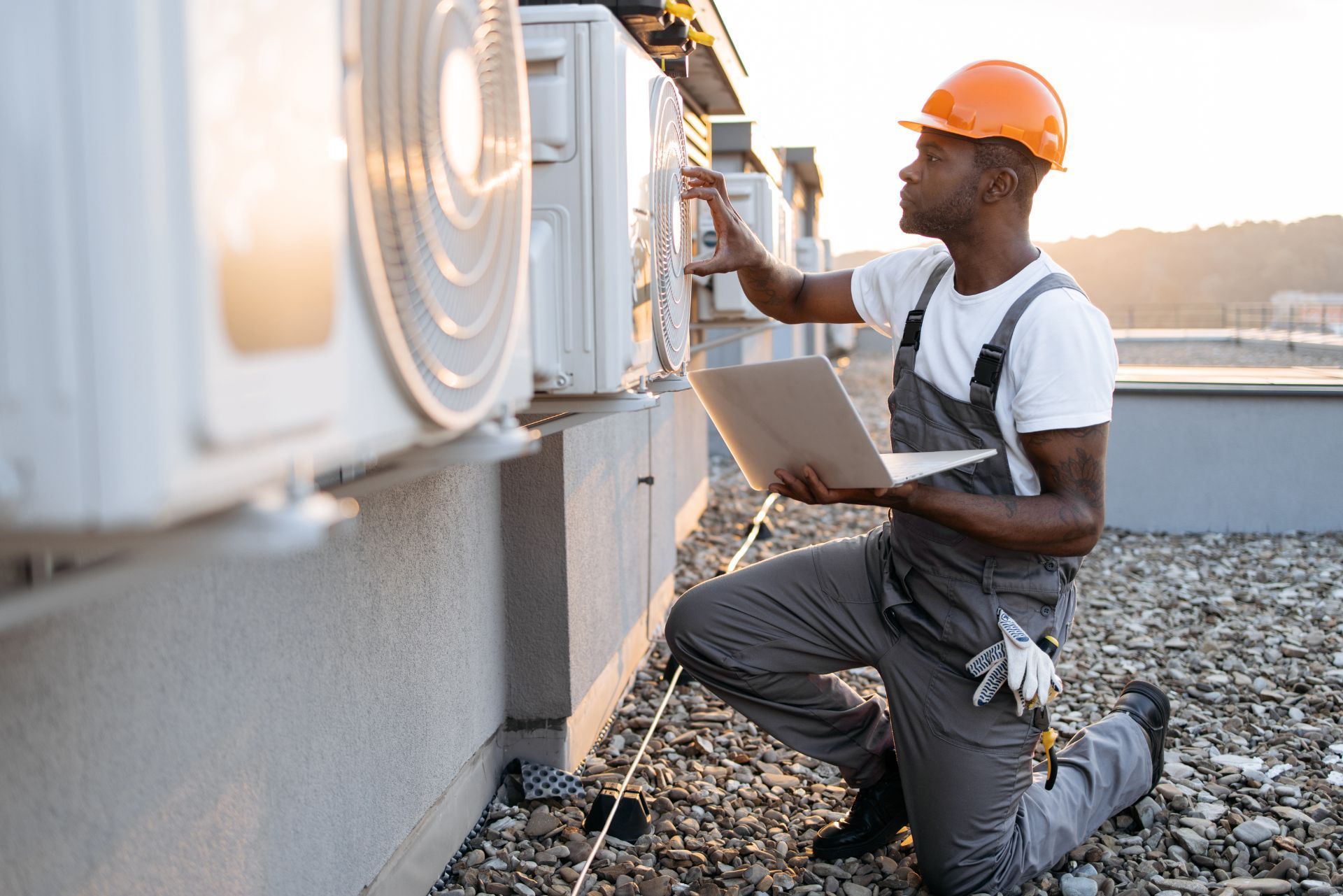Top 3 Recommended Policies

For HVAC contractors operating in Maine, understanding the nuances of insurance coverage is essential. The state’s unique climate, evolving heating technologies, and local market dynamics all influence the types of insurance policies contractors need to protect their businesses effectively. This comprehensive guide covers everything from market trends and insurance challenges to workers’ compensation and home insurance impacts, helping Maine HVAC professionals navigate their insurance landscape with confidence.
The Growing Maine HVAC Market and Its Insurance Implications
Maine’s Heating & Air-Conditioning Contractors industry is expanding steadily, projected to reach a market size of $533.5 million by 2025. With 819 establishments employing over 2,200 workers, the sector represents a significant part of the state’s economy. This growth reflects rising demand for modern heating and cooling solutions, including heat pumps and pellet stoves, which are gaining popularity as homeowners seek energy-efficient alternatives to traditional oil furnaces. The shift towards these technologies is not only driven by environmental concerns but also by the increasing cost of heating oil, prompting many to explore more sustainable and cost-effective options. As a result, HVAC contractors are finding themselves at the forefront of this transition, needing to adapt their skills and offerings to meet the evolving preferences of consumers.
However, this growth also brings new insurance considerations. Contractors must ensure their coverage aligns with the increasing complexity of HVAC installations and maintenance. For example, the integration of mini-split heat pumps, which are becoming more common in Maine homes, has led to unique insurance challenges. A notable case involved a homeowner who was denied insurance coverage after planning to replace an oil furnace with a mini-split heat pump and pellet stove, underscoring the importance of understanding insurer requirements when recommending or installing such systems. Additionally, as contractors expand their services to include smart home technology and advanced HVAC systems, they may face increased liability risks. This necessitates a thorough review of their insurance policies to ensure they are adequately covered against potential claims arising from these new technologies.
For contractors looking to stay ahead, partnering with insurance providers who understand Maine’s HVAC market can be invaluable. Companies like Affordable Contractors Insurance offer tailored policies that cater specifically to local contractors, combining expertise with affordable, fast service. Furthermore, as the market evolves, contractors should also consider investing in additional training and certifications related to new HVAC technologies. This not only enhances their skill set but can also positively influence their insurance premiums, as insurers often reward businesses that demonstrate a commitment to safety and quality through ongoing education. Engaging in community outreach and education about energy efficiency can also bolster a contractor's reputation, positioning them as trusted experts in a rapidly changing industry.

Key Insurance Challenges for Maine HVAC Contractors
One of the most pressing issues for HVAC contractors in Maine involves navigating insurance policies related to modern heating technologies. Tobie Stanger, senior editor at Consumer Reports, highlights that insurers may deny coverage if a mini-split heat pump isn’t recognized as a primary heat source. This can lead to significant risks such as frozen pipes during harsh winters, which not only affect homeowners but also expose contractors to liability concerns. The unique climate of Maine, with its frigid temperatures and heavy snowfall, makes it essential for contractors to ensure that the systems they install are adequately covered under insurance policies. This complexity can create a challenging landscape for contractors who must balance the latest technology with the requirements of insurance providers.
Contractors must be proactive in educating clients about these insurance nuances and ensure that any system upgrades or replacements comply with insurance standards. This is especially critical given Maine’s cold climate, where heating reliability is paramount. Staying informed about insurer policies and advocating for clear communication between homeowners, insurers, and contractors can prevent costly disputes and coverage gaps. Additionally, contractors should consider developing informational materials or workshops that help homeowners understand the importance of selecting systems that meet insurance criteria, thereby fostering a more informed customer base that can make better decisions regarding their heating solutions.
Moreover, Maine’s HVAC contractors face challenges related to workers’ compensation insurance. The state’s comprehensive worker protection laws mean that the average workers’ compensation cost for HVAC technicians is around $2,066 per employee. While this reflects Maine’s commitment to worker safety, it also means contractors need to budget carefully for these expenses and maintain rigorous safety standards to minimize claims. To further mitigate these costs, contractors might explore implementing regular safety training sessions and investing in high-quality safety equipment, which not only protects their employees but can also lead to lower insurance premiums over time. Additionally, fostering a culture of safety within the workplace can enhance employee morale and productivity, creating a win-win situation for both contractors and their teams.
Furthermore, the evolving landscape of insurance regulations poses another layer of complexity for HVAC contractors in Maine. With the introduction of new technologies and practices, insurers are continually updating their policies to reflect current industry standards. This means that contractors must remain vigilant and adaptable, regularly reviewing their insurance coverage to ensure it aligns with the latest advancements in HVAC technology. Engaging with industry associations and attending workshops can provide valuable insights into emerging trends and regulatory changes, equipping contractors with the knowledge needed to navigate this dynamic environment effectively. By staying ahead of these changes, contractors can better serve their clients and protect their businesses from unforeseen liabilities.
How Maine’s Home Insurance Landscape Affects HVAC Contractors
Home insurance rates in Maine have remained relatively stable compared to national trends, with average premiums around $1,200 in 2024. This stability is largely due to Maine’s low risk of natural disasters, a factor noted by Chase Gardner, data analysis manager at Insurify. However, this doesn’t mean the insurance environment is without challenges.
Climate change and rising construction costs are projected to increase Maine’s home insurance rates by approximately 19% by the end of 2024. For HVAC contractors, this means that homeowners may face higher insurance premiums when upgrading or replacing heating systems, especially if those systems do not meet insurer criteria. Understanding these dynamics is crucial for contractors advising clients on system choices and installation practices.
Contractors should also be aware that insurance companies may scrutinize heating system changes closely. The case of a Maine homeowner denied insurance after replacing an oil furnace with a mini-split heat pump and pellet stove serves as a cautionary tale. Such scenarios highlight the importance of contractors verifying insurance implications before recommending alternative heating solutions.
Furthermore, as energy efficiency becomes a priority for both homeowners and insurers, HVAC contractors must stay informed about the latest technologies and regulations. Energy-efficient systems not only help homeowners reduce their carbon footprint but can also lead to lower insurance premiums. Insurers are increasingly incentivizing the installation of high-efficiency heating and cooling systems, which can translate into long-term savings for clients. This shift presents an opportunity for contractors to educate homeowners on the benefits of investing in modern HVAC solutions that align with both environmental goals and insurance requirements.
In addition to energy efficiency, contractors should consider the role of smart home technology in the insurance landscape. Many insurers are now offering discounts for homes equipped with smart thermostats and other connected devices that monitor energy usage and system performance. By integrating these technologies into their services, HVAC contractors can not only enhance their offerings but also help clients navigate the evolving insurance landscape. This proactive approach can foster stronger relationships with homeowners, positioning contractors as trusted advisors in an increasingly complex market.
Essential Insurance Coverage Types for Maine HVAC Contractors
To operate safely and securely, HVAC contractors in Maine should consider a range of insurance coverages tailored to their specific risks. General liability insurance is fundamental, protecting against property damage or bodily injury claims arising from job site accidents. Given the physical nature of HVAC work and the potential for property damage, this coverage is a must-have. It not only shields contractors from financial loss but also enhances their credibility with clients, as many homeowners and businesses prefer to hire insured professionals.
Workers’ compensation insurance is another critical component, especially in Maine where the average cost per HVAC employee is significant. This insurance covers medical expenses and lost wages if an employee is injured on the job, ensuring compliance with state laws and safeguarding both workers and employers. In a state known for its harsh winters, where HVAC systems are crucial for comfort and safety, having this coverage is vital for maintaining a reliable workforce and minimizing downtime due to injuries.
Contractors should also explore equipment insurance to protect valuable tools and machinery from theft or damage. Given the high cost of HVAC equipment, this insurance can be a financial lifesaver. Additionally, professional liability insurance can provide coverage for claims related to installation errors or design flaws, which can be particularly relevant when working with advanced heating technologies like heat pumps and pellet stoves. Such coverage can help contractors navigate the complexities of liability that arise from the increasing sophistication of HVAC systems, ensuring they can focus on delivering quality service without the looming fear of potential litigation.
Moreover, it’s important for HVAC contractors to consider commercial auto insurance, especially if they operate vehicles for transporting equipment and personnel. This coverage protects against accidents that may occur while driving for business purposes, which is crucial given the extensive travel often required in this line of work. Additionally, as the industry evolves with new technologies and practices, contractors should stay informed about emerging risks and consider specialized policies that address unique challenges, such as cyber liability insurance for those who manage customer data electronically. By proactively securing comprehensive insurance coverage, HVAC contractors can not only protect their business but also foster trust and reliability within the communities they serve.

Tips for Choosing the Right Insurance Provider in Maine
Selecting an insurance provider who understands the nuances of Maine’s HVAC industry is vital. Local expertise can make a significant difference in how well a policy fits a contractor’s needs. Providers like Affordable Contractors Insurance emphasize their knowledge of Maine’s market, offering tailored coverage options that balance affordability with comprehensive protection. This localized understanding not only aids in crafting policies that reflect the unique challenges of the region, such as harsh winters and the prevalence of older homes, but also ensures that claims are handled with sensitivity to local regulations and practices.
When evaluating insurance options, contractors should consider factors such as claims processing speed, customer service quality, and policy flexibility. It’s also wise to review any exclusions related to emerging technologies like mini-split heat pumps, ensuring that coverage aligns with the types of systems commonly installed in Maine homes. Additionally, contractors should inquire about the provider's experience with specific HVAC-related claims, as this can shed light on how effectively they will handle potential issues that may arise in the future. Understanding the nuances of coverage for seasonal work, which is prevalent in Maine due to fluctuating weather conditions, can also be crucial for maintaining business stability throughout the year.
Working with an insurance agent who can provide personalized advice based on the contractor’s business size, scope, and risk profile can help avoid coverage gaps and unexpected costs. Regularly reviewing and updating insurance policies as the business grows or as new technologies are adopted will keep contractors protected in a changing market. Furthermore, it’s beneficial to engage in ongoing education about industry trends and regulatory changes that could impact insurance needs. Networking with other local contractors can provide insights into their experiences with various providers, helping to inform a contractor’s decision-making process. By fostering these relationships and staying informed, contractors can better navigate the complexities of insurance in Maine’s HVAC landscape, ensuring they are well-equipped to meet both their business goals and their clients' needs.
Conclusion: Navigating Insurance for a Secure HVAC Business in Maine
The Maine HVAC industry is thriving, driven by increasing demand for modern, energy-efficient heating and cooling solutions. However, this growth comes with insurance complexities that contractors must navigate carefully. From understanding the impact of new heating technologies on home insurance to managing workers’ compensation costs, Maine HVAC contractors face a unique set of challenges.
By staying informed about market trends, insurer policies, and state-specific regulations, contractors can secure the right insurance coverage to protect their businesses and clients. Leveraging local expertise and maintaining open communication with insurers will help ensure smooth operations and long-term success in Maine’s dynamic HVAC market. For more detailed information on Maine’s HVAC industry and insurance options, resources like
IBISWorld’s industry reports provide valuable insights into market size and trends.
Contact Us
HVACInsure is fully licensed and permitted to sell contractor and commercial insurance in Maine.
We proudly serve clients throughout Maine and maintain partnerships with local Maine insurance carriers to ensure HVAC professionals receive compliant, affordable, and comprehensive coverage that meets project and regulatory requirements.
HVACInsure Focuses on Maine HVAC Contractor Insurance
Portland – Lewiston – Bangor – South Portland – Auburn – Biddeford – Sanford – Saco – Westbrook – Augusta – Waterville – Presque Isle – Brewer – Bath – Ellsworth – Caribou – Old Town – Rockland – Belfast – Gardiner – Hallowell – Calais – Eastport – Kittery – Brunswick
Frequently Asked Question
Common HVAC Contractor Insurance Questions in Maine
These FAQs address common contractor questions. As HVACInsure grows, we will update this section with real client experiences and answers.
How does Maine's cold climate affect my HVAC insurance needs?
Maine's long winters mean heating-focused work. We structure coverage for the oil, propane, and heat pump systems common in Maine homes.
What coverage do I need for oil heating system work?
Oil heat dominates in Maine. We cover tank liability, fuel system work, and the environmental risks associated with heating oil systems.
Do I need special coverage for seasonal property work?
Maine has many vacation homes. We cover the seasonal opening/closing work, winterization, and summer cottage HVAC service common in tourist areas.
What about coverage for working in remote coastal communities?
Maine's coast has many small communities. We cover the travel time, ferry expenses, and logistics of serving remote locations.
How do Maine's licensing requirements affect my insurance?
Maine requires HVAC contractors to be licensed through the Oil and Solid Fuel Board. We ensure compliance with state requirements.
Can I get coverage for heat pump installations?
Absolutely. Heat pumps are growing fast in Maine due to incentives. We cover mini-split and cold-climate heat pump installations.

Still have questions?
Can’t find the answer you’re looking for? Please chat to our friendly team!

About The Author: James Jenkins
I’m James Jenkins, Founder and CEO of HVACInsure. I work with HVAC contractors and related trades to simplify insurance and make coverage easier to understand. Every day, I help business owners secure reliable protection, issue certificates quickly, and stay compliant so their teams can keep working safely and confidently.
Recognized by National HVAC Trade Associations
These trusted organizations set best practices and standards that carriers rely on when underwriting HVAC risks.
Membership signifies adherence to HVAC industry standards and contractor best practices.


